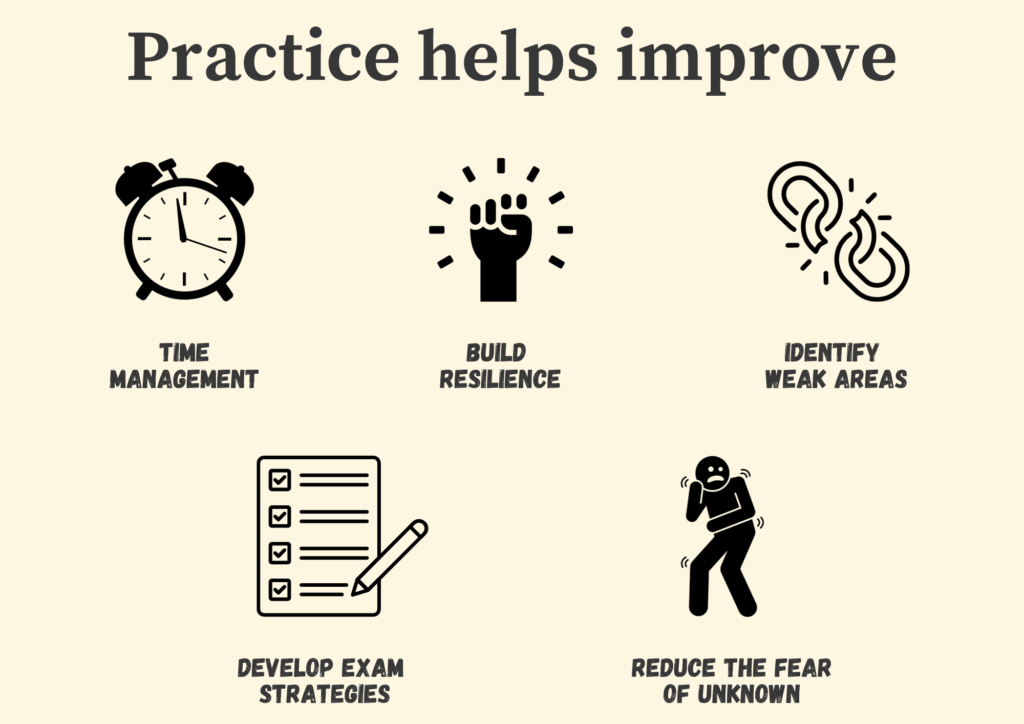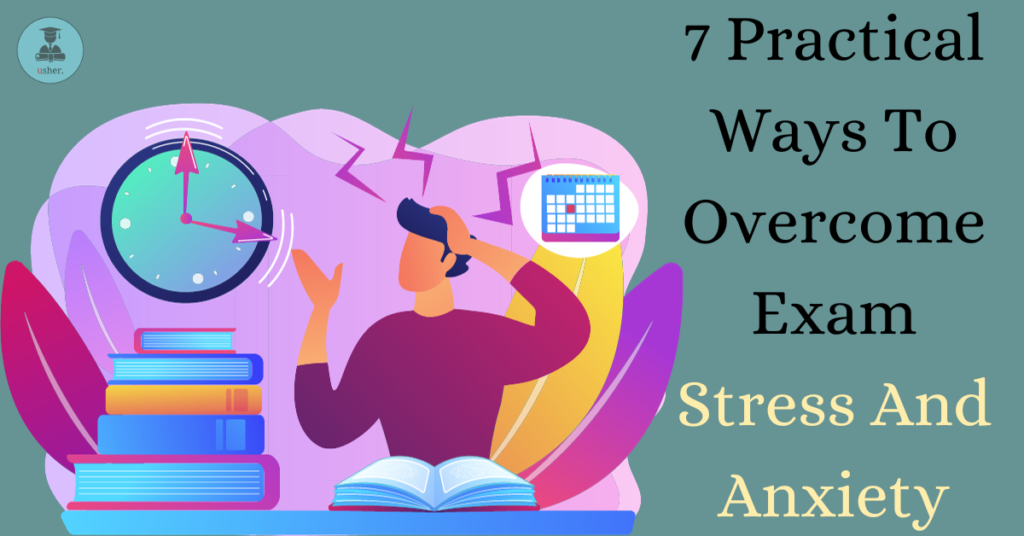I still remember the month when I was going to have my entrance exam to get into a medical college. Stress, nervousness, anxiety was all over my body. Boy, I couldn’t control it no matter what! As exam day drew closer, this stress increased dramatically. Little did I know that this stress would have an adverse impact on my mental wellness and academic performance.
Exam stress and anxiety are quite common among students of all ages. It is completely normal to feel stressed out, nervous, or anxious during your exam. But there is a saying: “Too much of anything is bad”. This holds true in this study as well.
Overwhelming yourself with too much stress and anxiety is not recommended.
Yes, I get it; it’s not easy to control these emotions. But hey, it’s not impossible either.
Let us discuss a few tips on how we can manage and overcome exam stress and anxiety.
Plan and set realistic goals
Procrastination is one of the biggest factors that causes stress and anxiety during exams. Planning ahead and having a clear plan of action are necessary before beginning exam preparation.
Don’t set fictional goals that are unrealistic and unattainable. For example, completing the entire syllabus one day prior to the test. I understand this is pretty common among students, but it is practically not feasible. Therefore, set realistic goals right from day one.
Practice
“Practice makes a man perfect”, yes and practice also makes you less stressed. Exam preparation helps students become more confident in their knowledge of the material, which lowers tension and anxiety.

Incorporating consistent and structured practice into study routines not only helps to reduce exam stress, but it also promotes effective learning and improves exam performance.
Relax and take frequent breaks
Studying is not the only activity students are supposed to be doing during their exams. You must take regular, short breaks during your preparation.
Step away from your books and do something enjoyable to clear your head. Go for a short ride, take a stroll in the park, or spend some time watching your favourite online series. Your favourite activities have the power to instantly lift your spirits, refresh your mind, and reduce stress.
Additionally, these breaks aid in maintaining focus and preventing burnout.
Eat healthy and sleep well
At times, students indulge too much in preparation that they forget having adequate meal and getting plenty of sleep.
Studies have indicated that students who are well-nourished perform better in class and that eating well-balanced meals improves memory and alertness and speeds up information processing.
Again, all-nighters are one way to ensure increased stress. Students need to get proper amount of sleep at night, which thereby helps them stay focused during exam season. When someone is well rested, their memory retention and capacity for sustained focus are significantly enhanced.
Exercise and Meditate
Along with healthy eating and sound sleep, exercising regularly and meditating also contribute to improving academic performance. Engaging in physical exercise promotes a positive outlook by reducing anxiety and stress. Additionally, exercise has been shown to enhance cognitive function and memory, which can be beneficial during exams.
Practicing meditation can help you find inner peace, focus your energy, and increase your productivity. Meditating regularly can also improve concentration and attention span, allowing you to study more effectively and retain information better.
Approach with a positive mindset
Don’t let negativity and despair overtake your mind. Maintaining a positive mindset can have a significant impact on academic performance. Research has shown that optimistic students tend to have better problem-solving skills and are more resilient in the face of challenges. By cultivating a positive outlook, students can approach exams with confidence and effectively manage stress. Remember, a positive mindset can make all the difference in achieving success.
Consult with your elders for advice
Anxiety and stress related to exams can be extremely draining at times. If you are feeling overwhelmed by exam stress and anxiety, seek help or guidance from your parents, older siblings, or teachers. Share your feelings with your loved ones, as they will help you find a better way to deal with your problems, manage your stress, and provide a broader perspective on exams and their significance.
Seeking help during exam stress can also help you identify any underlying problems, such as examophobia, perfectionism, or low self-esteem, and take the necessary steps to address them.
Always believe in yourself. Don’t let negative thoughts or people’s comments affect your mental health. Be prepared to face any challenge thrown your way. This would help you build resilience and strong character.
Remember, everyone experiences stress and anxiety, and it’s essential to find what works best for you. If your anxiety becomes overwhelming or persistent, consider consulting a mental health professional for additional support and guidance.
All the best!




